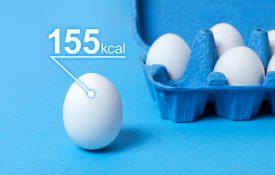-
Troubled #hearts — in 140 characters
I joined Twitter in 2008, and I’ve always been impressed by the diversity of this floating conversation. People will just as soon tweet about dinner as the sorry state of American politics, and they are by turns thoughtful and shallow, original and fraudulent, snide and generous of spirit. In 140 characters or fewer, users reflect the range of human emotion, from joy to rage, wonder to boredom, cynicism to hopefulness. Individual Twitter users can obviously reveal a lot about their lives and feelings, even in terse tweets. But what about very large numbers of tweets, by many people in many places? Is it possible that aggregate Twitter patterns might also be revealing in some useful way?
-
Brain Wave Could Prove What People Have Seen
Discovery: What if a brain wave test could prove whether you’d walked down the street carrying a yellow umbrella? New research suggests it could: Scientists have pinpointed a specific brain wave that responds to details it has encountered. That could have big implications for courtrooms (if a criminal had been carrying a pink umbrella, for example, a brain scan could help exonerate the suspect carrying the yellow umbrella). Electroencephalography (EEG) recordings show that the brain wave, known as P300, lights up when a person recognizes something meaningful among a list of random items. Read the whole story: Discovery
-

Brain Activity Provides Evidence for Internal “Calorie Counter”
As you glance over a menu or peruse the shelves in a supermarket, you may be thinking about how each food will taste and whether it’s nutritious, or you may be trying to decide what
-
Scientists Trying New Trick to Catch You in a Lie
ABC News: Ah, Pinocchio, where are you when we need you? How convenient it would be if a liar's nose grew longer with every lie. Then we wouldn't need modern science with all those brain scanners and high tech gizmos to tell us when somebody is fibbing. Ever since John Larson, a medical student at UC Berkeley, invented the polygraph in 1921, scientists have tried to come up with a more reliable way to decipher autonomous signals from the human brain whenever a subject is bending the truth. Cameras that track shifty movements of the human eye and sensors that detect sweaty palms or muscle twitches that we can't control have all been tried with varying degrees of success.
-
How Consumers’ Moods Drive Decisions
The Atlantic: In April this year, scientists from Georgia Tech and Yahoo Labs reported that something strange was manipulating online restaurant reviews. It wasn't hackers. It wasn't software bugs. It was rain, snow, and sunshine. After looking at more than 1 million online reviews on sites like TripAdvisor, they found that restaurants received significantly better ratings on days with nice weather and worse reviews on any day with rain. “The best reviews are written on sunny days between 70 and 100 degrees,” researcher Saeideh Bakhshi concluded. “A nice day can lead to a nice review. A rainy day can mean a miserable one.” ...
-
We Want Privacy, but Can’t Stop Sharing
The New York Times: IMAGINE a world suddenly devoid of doors. None in your home, on dressing rooms, on the entrance to the local pub or even on restroom stalls at concert halls. The controlling authorities say if you aren’t doing anything wrong, then you shouldn’t mind. Well, that’s essentially the state of affairs on the Internet. There is no privacy. If those creepy targeted ads on Google hadn’t tipped you off, then surely Edward J. Snowden’s revelations, or, more recently,Jennifer Lawrence’s nude selfies, made your vulnerability to cybersnooping abundantly clear. ...

